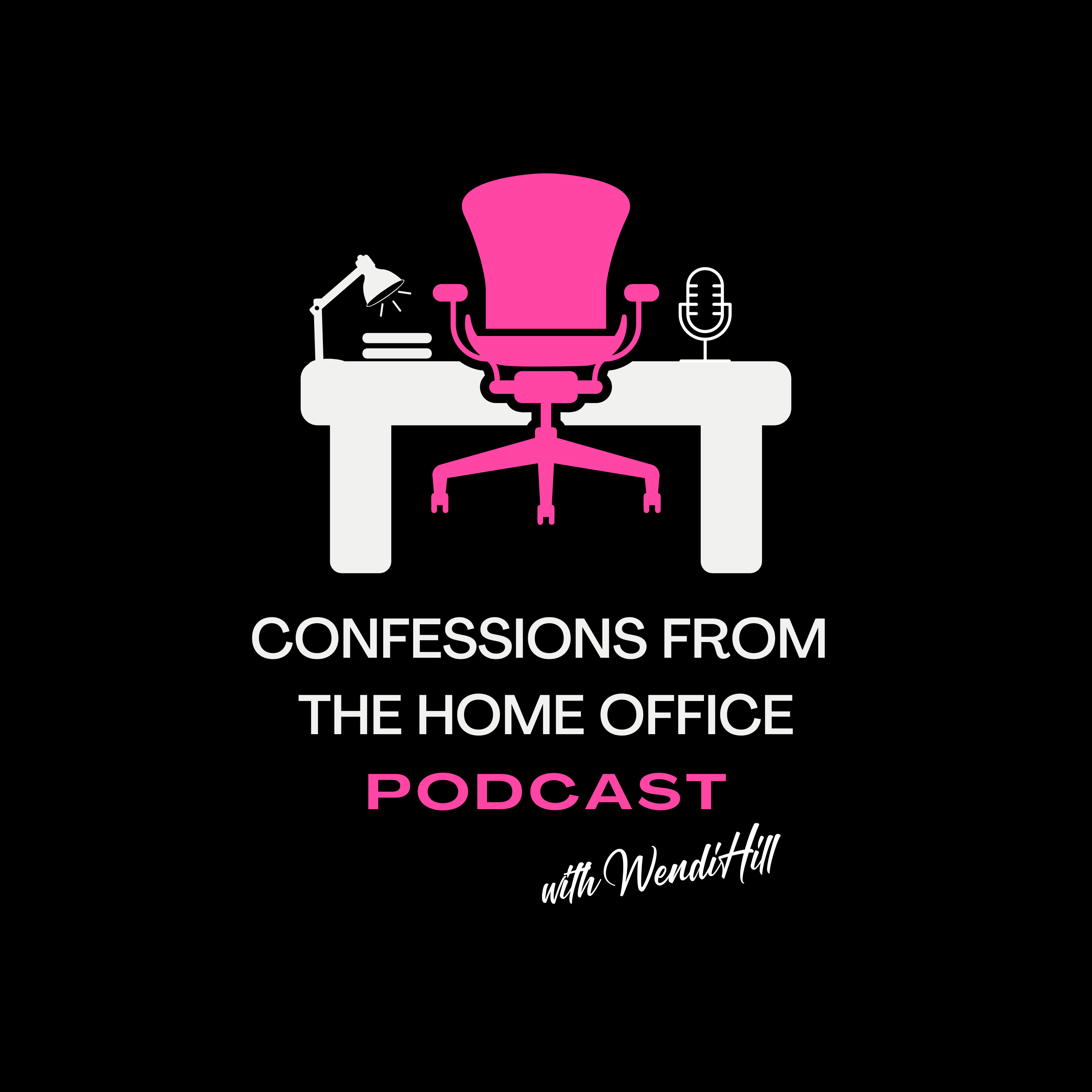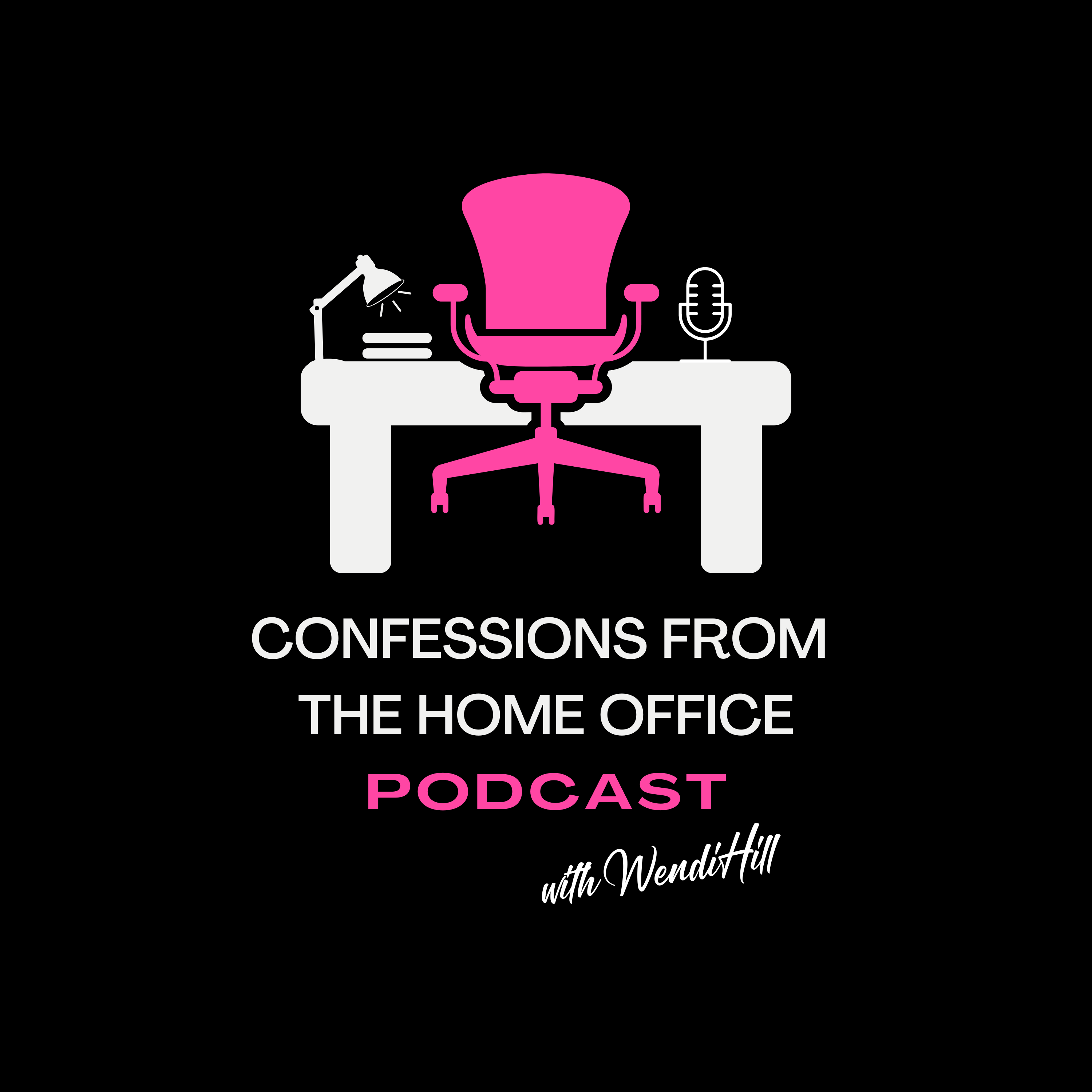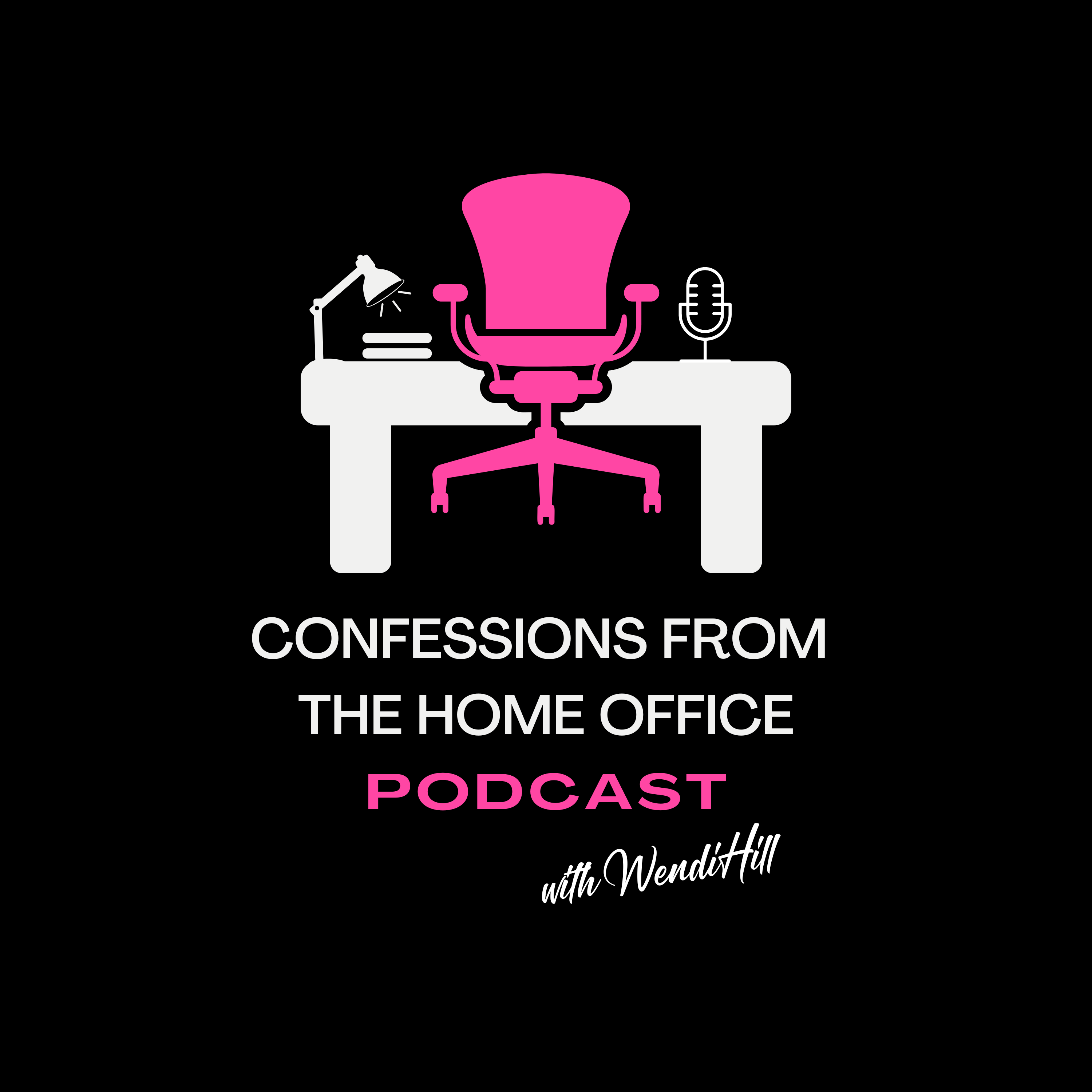[00:00:06] Hi everyone, and welcome back to the Confessions from the Home Office podcast. I'm Wendy Hill. I've worked from home for 20 years while running my marketing consulting business. Each week I have a new episode about working from home, a marketing topic. And sometimes I have episodes with great guests who are also business owners. If you're on a podcast platform, you won't notice any difference this week. If you usually watch this on YouTube, this. This is just audio. This week I was having some camera issues and I didn't want to skip an episode. So this week is just audio only.
[00:00:37] So, as a marketing consultant, I've had my fair share of experiences where being flexible has really helped me land clients, grow clients, retain clients. But I've also learned that there are times when flexibility can actually hurt your business.
[00:00:54] So today we're going to cover when to be flexible with clients, when not to be flexible with clients, and how the right balance of flexibility can help grow your business.
[00:01:04] So being flexible doesn't mean being a pushover. It means adapting to situations that benefit both you and your client. Here are some situations where flexibility can really be helpful.
[00:01:17] Number one, Project scope adjustment. Within reason. Sometimes a client realizes mid project that they need a slight shift in direction. There might be a change with something. There might be something that they have to add on or a small tweak. If it doesn't really derail the process, it doesn't really change the workload that much. And especially if it doesn't really change the profitability of the project, accommodating that client can build a lot of goodwill and a lot of loyalty. Just keep going, deliver the results, and chances are you've solidified that relationship even more. I feel like that happens a lot in marketing. Even if you have a really solid plan, something will happen, or something will happen in the market, or something will happen with a competitor, or something will happen internally with a client. And suddenly a project has to change. And you know what? That's okay. That's part of being a business owner. That's part of being in marketing.
[00:02:09] But just always think, is this going to be okay? Is this going to change the profitability? Is this going to change the scope tremendously? And if it's not, just keep going. So number two, deadlines and scheduling. So life happens for you and your clients. If a client needs to push back a deadline because someone's been sick in their family and they've had to be out, or they have to reschedule a meeting because something else came up and it really doesn't Disrupt your business significantly. Just roll with it. And I know when I sit down on Sundays and look at my week, I'm thinking I've got all this to do on Monday, all this to do on Wednesday. And if something happens, sometimes I'm like, good grief, that just kind of messed up the perfect week. Well, you know what, everything always ends up working out. So I've also noticed like with web projects, so when people are working on website projects with me, this is not something that clients do every single day. They're not constantly working on their website unless it's an e commerce client. And so if you ask them to take a look at some copy or send over some bullet points or give you feedback or pull together some videos or photos, things start to slow down. Or if you send something back for them to review and they're not really sure what they're supposed to be looking at, you need to explain it to them better. But realize that a lot of times projects just slow down because it may not be something that they're comfortable with or it's not something that's easy for them to do. You just have to roll with it because this isn't something they do every day. And also I want you to think about communication preferences. Some clients prefer texting or instant messaging over email or video calls over talking on the phone. I was talking about this the other day with a friend of mine and I said most of my clients, I'm talking to them over text and email right now. I have some clients that we still meet in person. I have some that we meet regularly over Google Meet or Zoom.
[00:04:07] But you know, with most of them doing text and email, it's made things really easy if I need to move around during the day or go check on my parents or take care of something at the farm. But I'm flexible and it's nice to see people face to face or on the screen. But just learning how to adapt to their, their preferred communication style can make the collaborate collaboration much smoother and show you're willing to meet them where they are. And I think sometimes some people will say you need to find out up front exactly how people want to be communicated with. And I think that's true. But I think over time some clients, as they become more comfortable, they might move to text as long as they're not texting 24 hours a day. I think sometimes things just evolve. You just have to roll with it. And then number four, let's talk about budget constraints.
[00:04:57] If a long term client hits a temporary rough patch and asks for a modified payment plan. Or let's scale back for a little bit. Accommodating could mean that you retain them longer after they get past the rough point. Get caught up instead of just walking away or saying, well, this isn't going to work, or I can't do this anymore. Maybe you restructure what you're doing for them. They pay less, you do less for a while. The market's kind of crazy, right? Um, but we're going to talk about this in the next section. You really need to set boundaries with this. So being flexible in these areas makes you a more attractive consultant to work with. Clients want someone who understands their needs and can adapt without making things difficult. Your job is to make things easier for them not to be a stressor, or for them to think, oh, here comes our marketing person. This is going to be a rough one. It needs to be. Our marketing person is here. I'm getting ready to have less stress now. Let's talk about where flexibility can backfire. As much as we want to accommodate our clients, there are some lines that you have to draw sometimes.
[00:05:59] Think about your core business values. If a client asks you to do something unethical, like inflating the marketing results, altering a report, copying a strategy of a competitor, don't bend on your values. That will come back to bite you. Your reputation is everything. And another thing that I want to put out there is if a client asks you to make an invoice out for something else besides marketing consulting or the project you're working on just to help an audit situation. I would, I would think through that carefully.
[00:06:29] What. What if you got audited? What if something happened and you got brought into it? I know a lot of people say that's never going to happen, but you just never know. Make sure what you're sending them is what you're supposed to be sending them and just everybody, everybody walk the line.
[00:06:45] Number two, scope creep without compensation. Have you ever had a client just keep adding, like, one more thing, like you've got a set project or you have a retainer and you're pretty maxed out with what you're doing with that retainer? It's fine to be flexible with minor tweaks, but when the work significantly exceeds the agreement, you're going to have to renegotiate terms. Otherwise, you're just working for free and you're not a charity.
[00:07:08] In your proposal, you need to have a line that says if the scope of the work changes, you have the right to submit A new estimate or an addendum to the estimate. Make sure you do that when you submit A proposal number three is unrealistic deadlines. If a client insists on an impossible turnaround, that means you're just knee jerking, firing things out and you're just kind of losing your sanity. And it's not just a one time thing. You need to say no.
[00:07:37] When there's constant rush work, it just leads to poor results. There ends up being mistakes and that's going to come back on you.
[00:07:47] I would also say that there's clients out there who say everything's a priority. If they give you 12 things to do on a call and you know that, yeah, they want it all done, but you need help getting things prioritized. Once you've done it long enough, you probably know which ones are the priority. But when they say everything's a priority, no, it's not.
[00:08:10] We don't ask vendors to do things that we don't need. So it's important, but we can't say I need everything all at the same time. So just, just be careful.
[00:08:20] You need some guidance and need to make sure that you're delivering what you need to deliver and that you're not late. So I would have to ask them to prioritize things and put things in order.
[00:08:31] The next thing is non payment or late payments. So being flexible with payment plans is one thing. Everybody runs into tough times or a payment they're waiting on to pay you is a little bit late. But if they consistently pay late or they try to avoid paying, you need to have strict policies. You need to have late fees or fines or whatever you feel like that you need to do with your business. No one likes to chase invoices. We don't need to hire someone just to chase down people who aren't paying us.
[00:09:04] There's a hard lesson learned here. I worked with a client for a really long time. We had a really good relationship. Their business was up and down at times because of the industry. Money was slow, it would stop and then it come back in waves. It was fine for a while and then it stopped again. And it stopped and it was quiet.
[00:09:23] This is the only time I've had to do this in 20 years. I had to get an attorney involved. I avoided court, but it took 18 months to get the money. I will never do that again. Shame on them for not being realistic with how they could pay things back and what they communicated. And shame on me for letting it get to be that bad. So lesson learned.
[00:09:43] And then the Next one is disrespectful or toxic clients. Some clients are really going to test your boundaries. Whether it's through micromanaging you last minute demands or just being disrespectful. You don't need to be flexible with people who don't respect you or the work that you do.
[00:10:00] The client who calls after every webinar that they watch and they want to change direction, go ahead and start shopping for a replacement client. That behavior is not going to change. The client who sends one line zingers on email and then when you get on the phone, they back down and they're a completely different person. They're not going to change.
[00:10:21] They don't trust their process for things, they probably don't trust you for some reason and all that frustration is being projected on you.
[00:10:30] You don't need that. So just get ready and move on. So knowing when to say no is just as important as knowing when to say yes. It helps you maintain the integrity of your business and ensures you're being compensated fairly for your time and for your expertise.
[00:10:46] So when done right, being flexible can actually help grow your business.
[00:10:49] It can help build stronger client relationships. When they see you as a partner rather than just a vendor or service provider, they're more likely to stay with you long term. That means recurring business and referrals.
[00:11:02] In my business, I stay with clients at least several years just knowing when to offer to help with something else.
[00:11:11] And when you finally learn the client and you're helpful and you're an ear for them, that really helps reputation for being easy to work with. You don't want to have the reputation of this person's a flake, this person doesn't show up. I never hear from this person. You want to be the person who shows up, who asks questions, who gets the work done, who makes suggestions.
[00:11:35] And you'll attract more clients that appreciate collaboration.
[00:11:39] Let's also talk about opportunities for innovation. Some of the best ideas come from being open to change. Being flexible with your approach to strategy or execution can lead to really great results and then increase client retention. Clients who feel heard and valued, they're going to stick around. It is much easier to keep a good client than to go out and find a new one. So when you have a good one, try to hang on to it. The key is to balance flexibility with firm boundaries. You're running a business, like I said, you're not running a charity. And clients will respect you more when you have clear limits while you're still being adaptable.
[00:12:17] So let's wrap this up. Flexibility in business is a really, really powerful tool, but only when applied the right way. I want you to know when to bend and when to stand firm. Protect your boundaries. Don't let people walk all over you, but remain open to reasonable adjustments. You know, from the time you have one meeting to the next, a lot of things happen at the client's office.
[00:12:42] So they're going to have new things. Everything's not going to stay on the exact same schedule or the exact same plan. Just know that's coming and that's part of the fun.
[00:12:51] So have you ever had a situation where flexibility saved or hurt your business? I feel like I'll hear from the marketing people on this the most. I really want to hear your thoughts. Reach out to me on social media or email
[email protected] and let's talk about it. If you found this episode helpful. Don't forget to subscribe. Leave a Review Follow Share all those and just thank you for tuning in to the Confessions from the Home Office podcast. I appreciate all the feedback and everybody who keeps listening. So until next time, I want you to keep building a business that works for.


